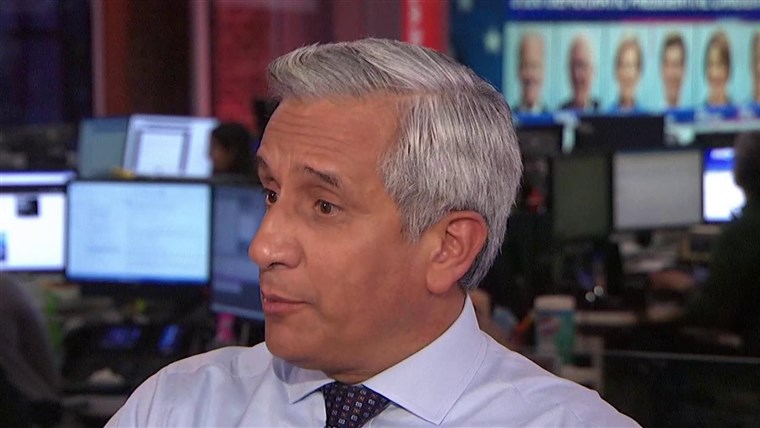Millennials least likely to get a flu shot, and anti-vax beliefs may play a role
One of the age groups most likely to be sidelined by the flu this season is also the least likely to get flu shots: millennials.
That’s one of the findings from a survey released Thursday conducted by the American Academy of Family Physicians. The survey asked 1,000 adults across the country about flu myths and misconceptions.
More than half — 55 percent — of people in their 20s and 30s said they did not get the flu vaccine this year. Their reasoning, usually, was that they didn’t have time or simply forgot.
But the poll also uncovered another potential reason for forgoing the flu shot: 61 percent of millennials familiar with the anti-vaccination movement said they agreed with at least some of those beliefs.
Dr. Alexa Mieses, a family physician in Durham, NC, said it’s “very alarming” to see people under the influence of the anti-vaccine movement. She said people in their 20s and 30s often opt for urgent care or telemedicine services when they’re sick, and are not as likely as older adults to have a long-standing relationship with a primary care doctor who could give them accurate vaccine information.
“I think there’s a missed opportunity to really build trust and communication and encourage millennials to get flu shots,” Mieses told NBC News.
Overwhelming evidence shows that vaccination — including the flu shot — is safe. And all major medical groups urge nearly everyone over age six months to get the yearly flu vaccine.
The AAFP survey also suggested that many parents aren’t getting the facts right about flu vaccines. Nearly 60 percent of polled moms and dads said that their child has missed at least one flu shot. One-fifth of those parents were concerned the shot would somehow make their child sick, and 10 percent said they didn’t think the flu is serious enough of an illness to warrant a vaccine.
Of course, the flu can cause severe illness. Already this season, the Centers for Disease Control and Prevention estimates there have been nearly 10 million cases of the flu, as well as 4,800 deaths. Thirty-two of those deaths were among children.
What’s more, the CDC reported the two main flu strains making people sick this season are more likely to affect children and young adults than the elderly.
A Gallup survey of 1,025 adults released earlier this week also suggested that the anti-vaccine movement has damaged national attitudes about not just the flu shot, but also vaccines overall. The percentage of Americans who said it was important for parents to vaccinate their kids fell from 94 percent in 2001 to 84 percent in 2019.
And while the link between vaccines and autism has been thoroughly discredited and debunked, 10 percent of adults in the Gallup survey believed it, up from six percent in 2015.
Anti-vax beliefs varied among racial and ethnic groups, the poll found. The AAFP survey found 61 percent of surveyed African Americans agreed with anti-vax beliefs, and many said they have not had a flu shot this year, and don’t plan on getting one.
“I personally have seen a lot of mistrust around the flu shot in my one-on-one interactions taking care of patients,” Mieses said. “We absolutely have to acknowledge the way in which the medical system exploited African Americans in the past that now contributes to a feeling of mistrust.”
Flu shots were viewed more favorably by another group: Asian Americans. Nearly 9 in 10 agreed the flu shot helps protect others and the group had high vaccination rates.
Other findings from the AAFP survey included:
- 23 percent of men said they did not get a flu shot because they didn’t think the illness was serious, compared to 5 percent of women.
- 19 percent of fathers said they did not have their child get a flu shot for the same reason, compared with 2 percent of mothers.
- 26 percent of all respondents said they’d talked with a doctor about the flu.
Follow NBC HEALTH on Twitter & Facebook.
*** This article has been archived for your research. The original version from NBC News can be found here ***




